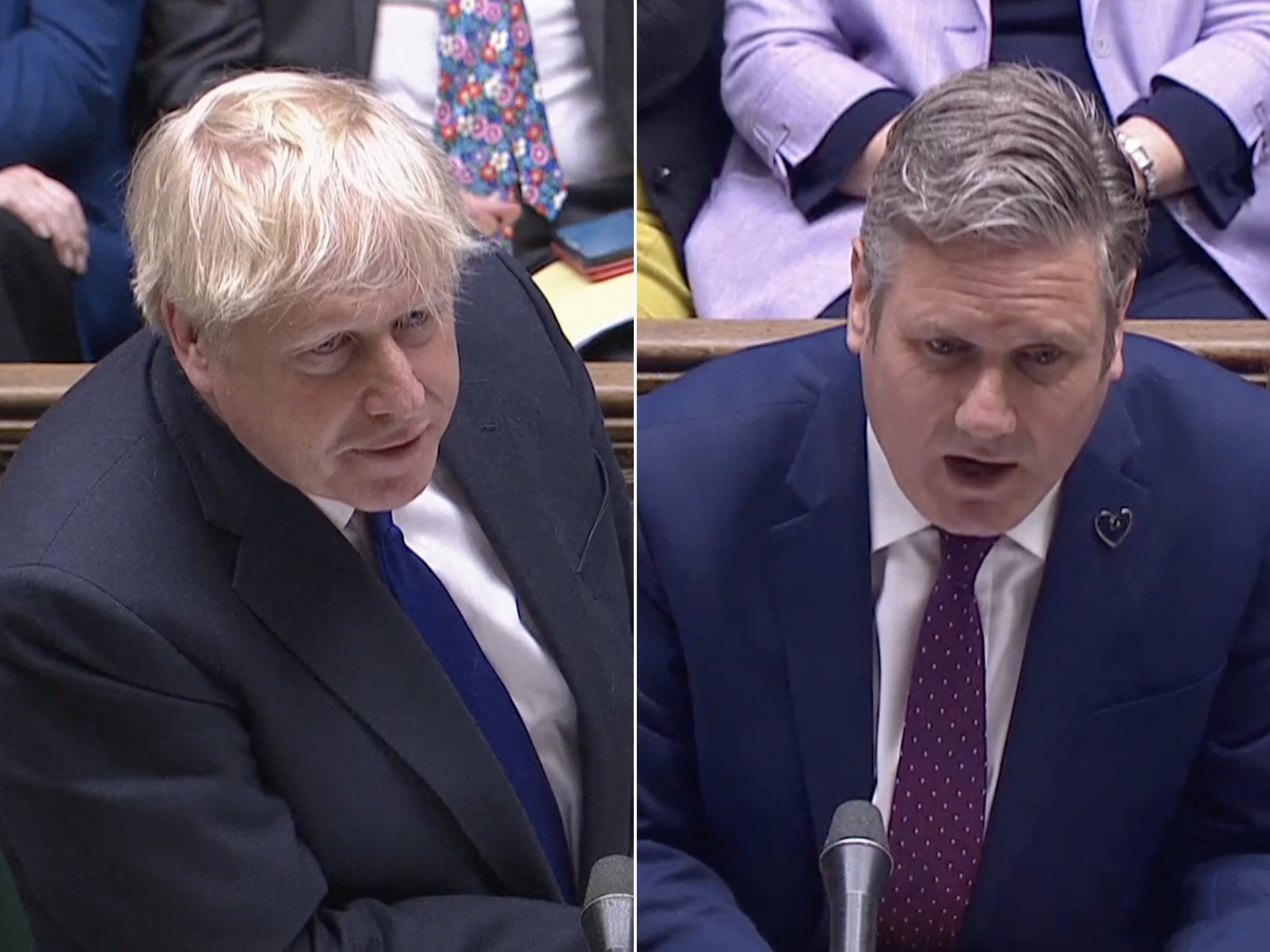Keir Starmer would have seen off law-breaker Boris Johnson – if he hadn’t already gone
The Labour leader has been cleared by the Durham constabulary, a day too late, writes John Rentoul


Keir Starmer has scored a decisive victory against Boris Johnson – the day after the prime minister resigned. The Labour leader took a calculated risk in promising to stand down if he were fined for lockdown rule-breaking. Now he has been vindicated – too late, because the lockdown law-breaker had already defeated himself.
We can observe that Starmer would not have made that pledge unless he was confident that he would not be served with a penalty notice, but it was undoubtedly a risk; he took it, and he won the gamble. The Durham constabulary has concluded that the gathering in the Miners’ Hall in April last year was lawful “due to the application of an exception, namely reasonably necessary work”.
So if Johnson were still clinging to office, Starmer would have a huge advantage at next week’s Prime Minister’s Questions. He would have been advised not to milk it himself – no one likes someone who proclaims their own moral virtue – but others could have pointed it out for him, and he could have asked about crime and mentioned the rule of law.
As it is, the advantage lies with the outgoing prime minister. Even he will benefit from the British love of the loser, and the Conservative tribe, fresh from doing him in, will cheer him more loudly than ever. They even cheered Margaret Thatcher, who appeared in the Commons after she had withdrawn from the Tory leadership election but before the second round in which John Major emerged the winner. “I’m enjoying this!” she declared, as she battered the opposition for not knowing whether it was in favour or against a single European currency.
Starmer is now in a similar position to Neil Kinnock, who had presented himself as a moderate, in contrast to Thatcher’s stridency, with a vanilla social democratic programme that could appeal to Tories who found her divisive. Suddenly, he found himself facing a moderate Tory, who ditched the poll tax and offered a slightly Tory version of Labour’s manifesto.
If Thatcher had stayed on – and she failed to do so by only four votes – she would have been beaten by Kinnock at the next general election. Just as, if Johnson hadn’t put a bomb under his own administration, Starmer would have been well placed to fight him as the law-abiding, principled leader against the arrogant rule-breaker.
Some might say that Starmer can still use that argument if Rishi Sunak is the next prime minister – he was fined for attending the same event as Johnson. But that charge doesn’t sting. The general view is that Sunak was unlucky to have turned up early for a meeting and to have been ambushed with some unexciting sandwiches, judging by the photos in the Sue Gray report. Whereas the general view is that Johnson was lucky to have been fined only for that event, when he was photographed raising a glass in toast at another one that looked more like a party, and was broadly in favour of the young people having a good time as a reward for working so hard.
To keep up to speed with all the latest opinions and comment, sign up to our free weekly Voices Dispatches newsletter by clicking here
Starmer can still present himself as the sea-green incorruptible, the prosecutor, the law enforcer, but it won’t have the same edge against a different prime minister. Johnson was uniquely vulnerable to the “one rule for them and a different one for the rest”. Mainly because he seemed to be trying to get around the rules when Dominic Cummings, his chief adviser, broke them; or when it came to paying for the redecoration of the Downing Street flat; or when his own MPs broke the rules on lobbying.
But partly it was because many people voted to leave the EU as a way of voting for a new kind of politics, in which the elite would no longer tell the masses what was good for them. When Johnson turned out to be “just the same”, it was more damaging for him than it would have been for a conventional politician.
That is why Starmer had to claim today: “This is not just about Boris Johnson – this feeling that politics has failed hasn’t emerged in the last few months.” He is right, but trust in politics is so low that people are just as likely to think that a new Conservative prime minister offers change as much as a Labour one.
The contrast between “Cleared” Starmer and “Law-Breaker” Johnson would have served Labour well. The contrast between Starmer and a new Tory prime minister will be more evenly balanced.
Join our commenting forum
Join thought-provoking conversations, follow other Independent readers and see their replies
Comments
Bookmark popover
Removed from bookmarks